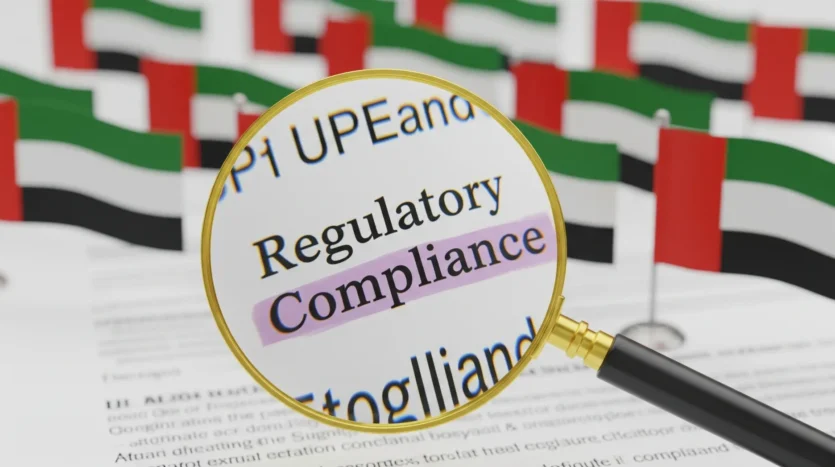Crowdfunding Real Estate Projects in Dubai: Is it a Viable Option?
Dubai real-estate crowdfunding lets investors buy fractional shares of new developments for as little as AED 5,000, spreading risk across multiple projects while earning rental income and potential capital gains—without the paperwork of a traditional mortgage.
Table of Contents
- How Does Real-Estate Crowdfunding Work?
- UAE Platforms & Market Growth
- Key Advantages
- Risks & How to Mitigate Them
- Regulation You Need to Know
- Crowdfunding vs. Other Investment Routes
- Is Crowdfunding Right for You?
- Step-by-Step Starter Checklist
- Boosting Returns with Professional Management
- Direct Ownership Alternatives in Dubai
- Final Verdict & FAQ
1. How Does Real-Estate Crowdfunding Work?
Crowdfunding platforms pool capital from hundreds of investors to fund a specific Dubai property or development. You receive digital share certificates that entitle you to:
| Revenue Stream | How It’s Generated | Typical Pay-Out |
|---|---|---|
| Rental Yield | Tenants occupy completed units | Quarterly / Bi-annual |
| Capital Gain | Project is sold or refinanced | Upon exit (3-7 years) |
Platforms charge a small asset-management fee (usually 1 – 2 % annually) and a success fee at exit.
2. UAE Platforms & Market Growth

According to the Dubai Financial Services Authority (DFSA), licensed crowdfunding portals grew by 45 % in 2024 DFSA. Popular names include SmartCrowd, Stake and Ajar. Each lists Dubai apartments, villas, or even off-plan communities like Dubai South.
“Fractional ownership is democratising Dubai’s property boom,” — Knight Frank MENA 2025 Outlook Knight Frank.
3. Key Advantages
- Low entry ticket: Start from AED 5–10 k, not AED 500 k.
- Diversification: Spread AED 100 k over 10 projects instead of 1 apartment.
- Hands-off: All paperwork, service charges, and tenant issues handled by the platform.
- Liquidity windows: Secondary markets allow you to exit earlier than project completion.
For a deeper dive into market fundamentals, read our in-house guide “Why Invest in Dubai’s Real Estate Market in 2025.”
4. Risks & How to Mitigate Them
| Risk | Impact | Mitigation |
|---|---|---|
| Construction Delays | Push back rental income | Choose projects with >50 % completion |
| Market Volatility | Lower resale price | Diversify across areas (e.g., JVC vs. Downtown) |
| Platform Failure | Operational risk | Use DFSA- or SCA-regulated portals |
Tip: Our article on “What Are the Risks of Capital Depreciation in Certain Areas of Dubai” shows how location selection matters.
5. Regulation You Need to Know

The Securities & Commodities Authority (SCA) issued Decision (23/RM) 2023, creating a dedicated framework for real-estate crowdfunding SCA. Platforms must:
- Hold a minimum paid-up capital of AED 5 million.
- Segregate client funds in escrow accounts.
- Publish audited statements annually.
Always verify a platform’s licence number on the SCA portal before wiring funds.
6. Crowdfunding vs. Other Investment Routes
| Feature | Crowdfunding | REIT | Direct Purchase |
|---|---|---|---|
| Minimum Capital | AED 5 k | AED 10 | AED 500 k+ |
| Control Over Asset Choice | Medium (you pick project) | Low | High |
| Ongoing Effort | None | None | High |
| Potential ROI (historic)* | 6 – 12 % | 4 – 7 % | 5 – 10 % |
*Based on 2019-2024 data from JLL MENA Capital Markets.
7. Is Crowdfunding Right for You?
Crowdfunding fits investors who:
- Want Dubai exposure but lack a large down-payment.
- Prefer passive income without tenant calls.
- Are comfortable with a 3- to 7-year horizon.
If you seek faster turnover strategies like flipping, explore “Flipping Properties in Dubai: A Realistic Guide.”
8. Step-by-Step Starter Checklist

- Verify Licence: Check SCA/DFSA registry.
- Read Project Memorandum: Developer track record, timeline, exit strategy.
- Diversify: Allocate no more than 20 % of your budget to one project.
- Fund Your Wallet: Transfer AED using secure escrow.
- Monitor Updates: Most portals offer quarterly dashboards.
9. Boosting Returns with Professional Management
Once a crowdfunded building is handed over, effective property management keeps occupancy high and service charges low. That’s where West Gate’s property-management team excels—optimising rents, screening tenants, and handling 24/7 maintenance so your passive investment remains truly passive.
“Since moving our units to West Gate, net rental yield jumped by 1.8 percentage points.” — Actual West Gate client, 2025.
10. Direct Ownership Alternatives in Dubai
Crowdfunding isn’t your only route. If you’re ready for full deeds and larger-ticket gains, browse:
- Curated properties for sale in Dubai
- High-yield properties for rent that suit buy-to-let buyers
For a strategic overview, download our “Dubai Real Estate Investment Guide.”
11. Final Verdict & FAQ
Bottom line: Crowdfunding real-estate projects in Dubai is a viable, regulated, and increasingly popular option for small to mid-ticket investors seeking passive exposure. Pair it with West Gate’s professional oversight to maximise your earnings and sleep easy.
FAQ
Q1. How do I exit a crowdfunded investment early?
Some portals run quarterly secondary windows; otherwise, you exit at project sale.
Q2. What returns can I realistically expect?
Historic Dubai projects delivered 8-10 % net IRR, but future performance depends on market cycles.
Q3. Is my capital guaranteed?
No. Real estate values can fall. Always diversify and invest money you can leave untouched for several years.
Ready to explore? Contact West Gate today and start building a diversified Dubai property portfolio—one fractional share at a time.






